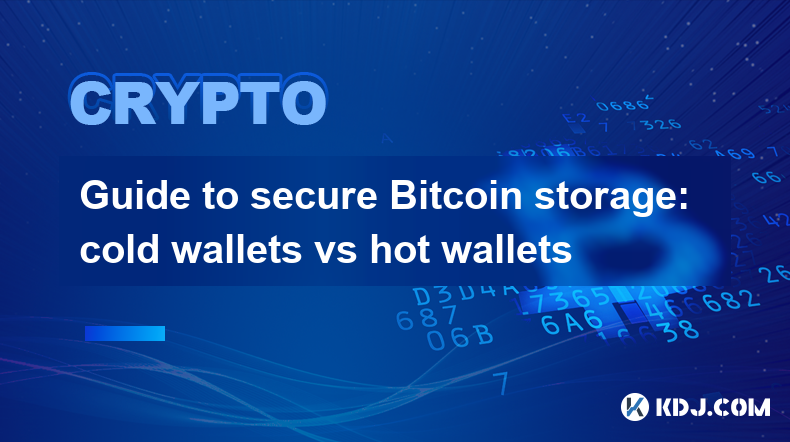-
 Bitcoin
Bitcoin $84,473.7362
1.10% -
 Ethereum
Ethereum $1,616.2066
1.57% -
 Tether USDt
Tether USDt $0.9996
0.02% -
 XRP
XRP $2.1579
5.05% -
 BNB
BNB $592.9954
0.65% -
 Solana
Solana $129.1197
3.66% -
 USDC
USDC $0.9998
-0.02% -
 Dogecoin
Dogecoin $0.1646
1.18% -
 TRON
TRON $0.2477
-0.22% -
 Cardano
Cardano $0.6440
1.91% -
 UNUS SED LEO
UNUS SED LEO $9.3598
0.00% -
 Chainlink
Chainlink $12.9547
1.30% -
 Avalanche
Avalanche $20.0105
4.73% -
 Sui
Sui $2.3213
4.54% -
 Stellar
Stellar $0.2436
2.82% -
 Shiba Inu
Shiba Inu $0.0...01236
0.46% -
 Hedera
Hedera $0.1713
1.70% -
 Toncoin
Toncoin $2.8951
-0.37% -
 Bitcoin Cash
Bitcoin Cash $340.1663
8.54% -
 MANTRA
MANTRA $6.2880
-1.52% -
 Litecoin
Litecoin $78.4675
2.81% -
 Polkadot
Polkadot $3.6529
1.99% -
 Dai
Dai $1.0000
0.00% -
 Hyperliquid
Hyperliquid $15.9526
0.72% -
 Bitget Token
Bitget Token $4.3724
-0.28% -
 Pi
Pi $0.7495
11.93% -
 Ethena USDe
Ethena USDe $0.9990
0.02% -
 Monero
Monero $209.4105
1.05% -
 Uniswap
Uniswap $5.4287
2.42% -
 OKB
OKB $53.8863
1.83%
The role of Bitcoin wallets: public keys, private keys and security analysis
Bitcoin wallets store public and private keys, not actual Bitcoins, and securing the private key is crucial to protect your funds from theft.
Apr 09, 2025 at 03:00 am

Bitcoin wallets play a crucial role in the world of cryptocurrency, serving as the gateway to securely store, send, and receive Bitcoin. Understanding the intricacies of Bitcoin wallets, particularly the concepts of public keys, private keys, and security analysis, is essential for anyone looking to navigate the cryptocurrency landscape safely and effectively. This article delves into these critical aspects, providing a comprehensive overview of how Bitcoin wallets function and the importance of securing them.
Understanding Bitcoin Wallets
A Bitcoin wallet is essentially a software program that stores the public and private keys necessary to interact with the Bitcoin network. Unlike traditional wallets that hold physical cash, a Bitcoin wallet does not store actual Bitcoins but rather the information needed to access and manage them on the blockchain. This includes generating and storing the public and private keys, which are fundamental to the operation of Bitcoin transactions.
Public Keys and Their Role
The public key in a Bitcoin wallet is a long string of numbers and letters derived from the private key through a cryptographic process. It serves as an address on the Bitcoin network where others can send Bitcoins. Think of the public key as your bank account number; it's safe to share with others because it doesn't allow access to your funds. When someone sends you Bitcoin, they use your public key to direct the transaction to your wallet.
To generate a public key, the wallet uses the private key as an input to a one-way cryptographic function. This function ensures that it's computationally infeasible to reverse-engineer the private key from the public key, maintaining the security of your funds. The public key is then hashed to create the Bitcoin address, which is the final form used in transactions.
Private Keys and Their Importance
The private key is the cornerstone of Bitcoin wallet security. It is a secret number that allows you to spend the Bitcoins associated with your public key. The private key must be kept confidential; if someone gains access to it, they can control your Bitcoins. It's akin to the password to your bank account; losing it means losing access to your funds, and sharing it means risking theft.
Private keys are generated randomly when you create a new Bitcoin wallet. They are typically stored in the wallet software, but for enhanced security, users can opt to store them offline in what is known as a "cold storage" method. The private key is used to sign transactions, proving ownership of the Bitcoins being spent. This signature is verified by the Bitcoin network, ensuring that only the rightful owner can move the funds.
Security Analysis of Bitcoin Wallets
Securing a Bitcoin wallet involves protecting both the public and private keys, with a particular emphasis on the private key. Here are some key security measures and considerations:
Encryption: Many wallet software programs encrypt the private key with a password. This adds an additional layer of security, as even if someone gains access to your wallet file, they would need the password to decrypt the private key.
Backup and Recovery: It's crucial to have a backup of your private key or the seed phrase used to generate it. This ensures you can recover your funds if your wallet is lost or damaged. However, backups must be stored securely to prevent unauthorized access.
Cold Storage: Storing your private key offline, away from internet-connected devices, significantly reduces the risk of hacking. Hardware wallets and paper wallets are popular cold storage methods.
Multi-signature Wallets: These require multiple private keys to authorize a transaction, adding an extra layer of security. This is particularly useful for businesses or groups managing shared funds.
Regular Updates: Keeping your wallet software up to date is essential to protect against known vulnerabilities. Developers frequently release updates to address security issues.
Types of Bitcoin Wallets
There are several types of Bitcoin wallets, each with its own method of storing and securing public and private keys:
Software Wallets: These are applications that run on your computer or mobile device. They are convenient for everyday use but can be vulnerable to malware and hacking if the device is compromised.
Hardware Wallets: These are physical devices designed specifically for storing private keys offline. They offer a high level of security but can be more expensive and less convenient for frequent transactions.
Paper Wallets: These involve printing out your public and private keys on a piece of paper. They are a form of cold storage but can be susceptible to physical damage or theft.
Online Wallets: These are hosted by third-party services and accessible via the internet. They are convenient but pose a higher risk of hacking since the private keys are stored on servers that could be compromised.
Best Practices for Securing Your Bitcoin Wallet
To maximize the security of your Bitcoin wallet, consider the following best practices:
Use Strong Passwords: Choose a complex password for your wallet and change it regularly. Avoid using easily guessable information like birthdays or common words.
Enable Two-Factor Authentication (2FA): If your wallet supports it, enable 2FA to add an additional layer of security. This typically involves a code sent to your mobile device that must be entered to access your wallet.
Be Wary of Phishing: Always verify the authenticity of websites and emails before entering your wallet information. Phishing attacks are a common method used to steal private keys.
Limit Exposure: Only keep the amount of Bitcoin you need for immediate transactions in an online or software wallet. Store the majority of your funds in cold storage.
Regularly Monitor Your Wallet: Keep an eye on your wallet's transaction history to quickly detect any unauthorized activity.
Frequently Asked Questions
Q: Can I have multiple Bitcoin addresses in one wallet?
A: Yes, most Bitcoin wallets allow you to generate multiple public addresses. This can be useful for organizing your funds or maintaining privacy by using different addresses for different purposes.
Q: What happens if I lose my private key?
A: If you lose your private key and do not have a backup, you will permanently lose access to the Bitcoins associated with that key. It's crucial to keep a secure backup of your private key or seed phrase.
Q: Is it safe to store my private key on a cloud service?
A: Storing your private key on a cloud service is generally not recommended due to the risk of hacking and unauthorized access. If you must use cloud storage, ensure it is encrypted and protected by strong security measures.
Q: How can I verify the authenticity of a Bitcoin wallet?
A: To verify the authenticity of a Bitcoin wallet, download it from the official website or a trusted source. Check user reviews and ratings, and look for wallets that have been audited by reputable security firms. Always be cautious of fake websites and phishing attempts.
Disclaimer:info@kdj.com
The information provided is not trading advice. kdj.com does not assume any responsibility for any investments made based on the information provided in this article. Cryptocurrencies are highly volatile and it is highly recommended that you invest with caution after thorough research!
If you believe that the content used on this website infringes your copyright, please contact us immediately (info@kdj.com) and we will delete it promptly.
- Bitcoin Price Today, April 13, 2025
- 2025-04-13 16:45:12
- Bitcoin (BTC) Shows Notable Resilience as It Clings to Support Above the Critical $74,000 Mark
- 2025-04-13 16:45:12
- Pi Network Launches New Ad Program with the Expansion of Its Ad Network
- 2025-04-13 16:40:15
- The Next Shiba Inu? XYZVerse Promises to Merge Sports Fandom with Crypto Community
- 2025-04-13 16:40:15
- Long-Term Holder Activity and Chart Patterns Suggest a Major Bitcoin Move Is Coming
- 2025-04-13 16:40:12
- Born from a meme, Dogecoin has established itself as a paradox of cryptocurrencies: both a joke and a serious asset.
- 2025-04-13 16:40:12
Related knowledge

What is Bitcoin halving? Analysis of the impact on prices
Apr 09,2025 at 01:14pm
Bitcoin halving is a pivotal event in the cryptocurrency world that occurs approximately every four years, or every 210,000 blocks. The event is designed to reduce the rate at which new bitcoins are generated, thereby controlling inflation and increasing scarcity over time. During a halving, the reward that miners receive for successfully adding a block...

What to do if Bitcoin is stolen? Security protection and recovery possibilities
Apr 09,2025 at 03:42pm
If your Bitcoin is stolen, it can be a distressing experience, but there are steps you can take to protect your remaining assets and attempt to recover your lost funds. This article will guide you through the process of securing your Bitcoin and exploring recovery possibilities. Immediate Actions After Bitcoin TheftThe moment you realize your Bitcoin ha...

How to avoid Bitcoin investment scams? Common scams revealed
Apr 10,2025 at 05:14pm
Introduction to Bitcoin Investment ScamsBitcoin and other cryptocurrencies have become increasingly popular investment options, attracting both seasoned investors and newcomers alike. However, with the rise in popularity, there has also been a surge in Bitcoin investment scams. These scams can range from Ponzi schemes to fake exchanges and fraudulent in...

Guide to secure Bitcoin storage: cold wallets vs hot wallets
Apr 11,2025 at 08:42am
Guide to Secure Bitcoin Storage: Cold Wallets vs Hot Wallets When it comes to storing Bitcoin, security is paramount. The choice between cold wallets and hot wallets can significantly impact the safety of your digital assets. This guide delves into the differences between these two types of wallets, their respective advantages and disadvantages, and how...

What is Bitcoin fork? Differences between BTC, BCH, and BSV
Apr 10,2025 at 02:21am
A Bitcoin fork refers to a change in the underlying protocol of the Bitcoin blockchain, which results in a divergence into two separate versions of the blockchain. This can happen as a result of a disagreement within the community about the direction of the cryptocurrency, or to introduce new features or improvements. There are two main types of forks: ...

The role of Bitcoin wallets: public keys, private keys and security analysis
Apr 09,2025 at 03:00am
Bitcoin wallets play a crucial role in the world of cryptocurrency, serving as the gateway to securely store, send, and receive Bitcoin. Understanding the intricacies of Bitcoin wallets, particularly the concepts of public keys, private keys, and security analysis, is essential for anyone looking to navigate the cryptocurrency landscape safely and effec...

What is Bitcoin halving? Analysis of the impact on prices
Apr 09,2025 at 01:14pm
Bitcoin halving is a pivotal event in the cryptocurrency world that occurs approximately every four years, or every 210,000 blocks. The event is designed to reduce the rate at which new bitcoins are generated, thereby controlling inflation and increasing scarcity over time. During a halving, the reward that miners receive for successfully adding a block...

What to do if Bitcoin is stolen? Security protection and recovery possibilities
Apr 09,2025 at 03:42pm
If your Bitcoin is stolen, it can be a distressing experience, but there are steps you can take to protect your remaining assets and attempt to recover your lost funds. This article will guide you through the process of securing your Bitcoin and exploring recovery possibilities. Immediate Actions After Bitcoin TheftThe moment you realize your Bitcoin ha...

How to avoid Bitcoin investment scams? Common scams revealed
Apr 10,2025 at 05:14pm
Introduction to Bitcoin Investment ScamsBitcoin and other cryptocurrencies have become increasingly popular investment options, attracting both seasoned investors and newcomers alike. However, with the rise in popularity, there has also been a surge in Bitcoin investment scams. These scams can range from Ponzi schemes to fake exchanges and fraudulent in...

Guide to secure Bitcoin storage: cold wallets vs hot wallets
Apr 11,2025 at 08:42am
Guide to Secure Bitcoin Storage: Cold Wallets vs Hot Wallets When it comes to storing Bitcoin, security is paramount. The choice between cold wallets and hot wallets can significantly impact the safety of your digital assets. This guide delves into the differences between these two types of wallets, their respective advantages and disadvantages, and how...

What is Bitcoin fork? Differences between BTC, BCH, and BSV
Apr 10,2025 at 02:21am
A Bitcoin fork refers to a change in the underlying protocol of the Bitcoin blockchain, which results in a divergence into two separate versions of the blockchain. This can happen as a result of a disagreement within the community about the direction of the cryptocurrency, or to introduce new features or improvements. There are two main types of forks: ...

The role of Bitcoin wallets: public keys, private keys and security analysis
Apr 09,2025 at 03:00am
Bitcoin wallets play a crucial role in the world of cryptocurrency, serving as the gateway to securely store, send, and receive Bitcoin. Understanding the intricacies of Bitcoin wallets, particularly the concepts of public keys, private keys, and security analysis, is essential for anyone looking to navigate the cryptocurrency landscape safely and effec...
See all articles






















































































